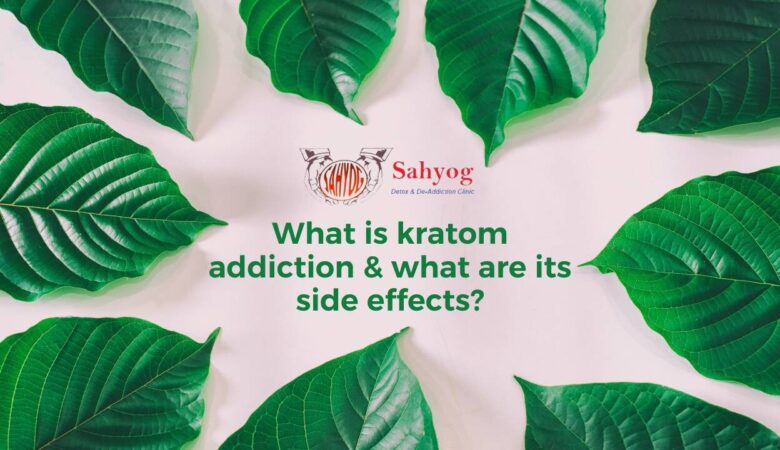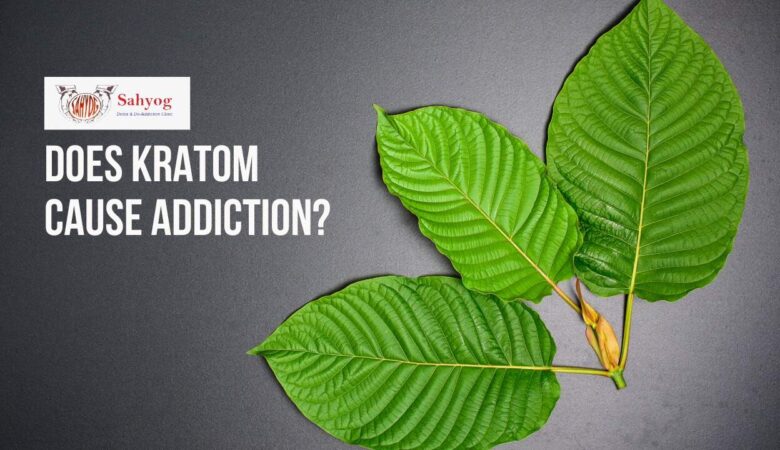What is Kratom Addiction & What are its Side Effects?
Introduction Kratom addiction is a real problem that many people are struggling with. If you or someone you love is addicted to kratom, it’s important to understand what the addiction is and what its side effects are. Kratom addiction can lead to serious health problems, including liver damage and seizures. If you or someone you know is addicted to kratom, it’s important to get help. Read on to learn more about the addictive nature of kratom and its side effects. What is Kratom? A tropical tree native to Southeast Asia, kratom has leaves that can have psychotropic effects. The leaves of the kratom tree are traditionally crushed and made into tea to treat pain, but kratom can also be chewed, smoked, or ingested in capsules. Kratom extract can be mixed with a liquid and marketed as a product to treat pain and stomach cramps. It can also be made into a liquid form and sold as a treatment for panic attacks. There is some concern that kratom may be addictive and lead to dependence, but more research is needed to understand the risks. Kratom is not currently illegal and has been linked to serious side effects including psychosis, seizure, liver damage, and death. Some people take kratom to ease withdrawal symptoms from opioid drugs, although there is no good evidence to support this use. There are many potential risks associated with using kratom. Some of the most serious risks include psychosis, seizure, liver damage, and death. Kratom use has also been linked to an increased risk of traffic accidents. What is Kratom Addiction? Kratom addiction is a real thing. And it’s a serious problem. Many people who start taking kratom do so because they are in pain and looking for relief. Kratom is an opioid, and it can be very effective at managing pain. But it’s also addictive, and people can develop a tolerance to it quickly. When people start taking kratom, they may not think that they could ever get addicted to it. But addiction is a real possibility with this drug. And it can have serious consequences. People who are addicted to kratom may have to take higher doses of the drug to get the same effect. However, this can lead to dangerous health problems such as liver damage and respiratory depression. Addiction is a serious problem, and it’s important to get help if you or someone you know is struggling with kratom addiction. There are treatment options available, and recovery is possible. What Causes Kratom Addiction? The addiction is caused by the continuous use of the kratom plant for its psychoactive effects. Kratom addiction can lead to physical and psychological dependence on the plant, and long-term use can cause side effects like weight loss, darkening of the skin, and constipation. The main symptom of this addiction is a strong desire to keep taking the drug, even when it is no longer providing the desired effects. Other symptoms include tolerance (needing to take higher doses to achieve the same effects), withdrawal (experiencing flu-like symptoms when stopping use), and cravings. There is no one-size-fits-all answer to treating addictiveness of kratom. Treatment depends on the individual’s unique situation and may include detoxification, therapy, and medication. What are the Side Effects of Kratom Addiction? The most common side effects of kratom addiction include: Nausea: If you are addicted to kratom, you might find yourself feeling nauseated and sick. Vomiting: Apart from nausea, you might even feel like vomiting or throwing up. This might just be another sign that you’re a victim of kratom addiction. Diarrhea: Kratom addiction can even cause a lack of water in the body, thus leading to diarrhea. Constipation: People addicted to kratom use are prone to digestive health problems such as constipation and diarrhea. Lethargy: Overdosage of kratom may lead you to feel lethargic and fatigued, and you might feel like you don’t have any energy left to do anything. Dizziness: Kratom addiction leads to lightheadedness, thus making the person dizzy and incapable of making any rational decisions. Headaches: Along with lightheadedness and dizziness, overdosage of kratom may even lead to headaches. Weight loss: Kratom addiction may even cause eating disorders, leading to weight loss. Insomnia: People addicted to kratom find it hard to sleep at night, and they might even suffer from insomnia. Memory problems: People addicted to kratom dosage may feel light-headed and dizzy, and may even face headaches and memory problems. Mood swings: Kratom overdose even leads to severe mood swings. Aggression or irritability: A person addicted to kratom usage may even find himself acting aggressive and irritated. Anxiety or depression: Along with all the side effects mentioned above, kratom addiction leads to several mental issues as well, such as anxiety, depression, uneasiness, agitation, nervousness, etc. Are there any Risks Associated with Kratom Addiction? Yes, there are risks associated with kratom addiction. While kratom is not considered an addictive substance by medical professionals, some individuals may develop a dependence on it. This is most likely to occur if someone takes large doses of kratom regularly or uses it to self-medicate for another condition such as pain relief. dependence can lead to withdrawal symptoms when someone stops taking kratom, which can include nausea, vomiting, diarrhea, and muscle aches. Some people may also experience anxiety and depression. These risks are often the result of kratom’s interactions with other drugs or medications. Kratom addiction can also cause: Liver damage: It can be difficult to turn down the pleasant sensations of kratom. However, when used too frequently, it can lead to rare cases of acute liver injuries. Users usually experience symptoms of fatigue, nausea, and itchiness followed by jaundice within a few weeks of ingesting the herb. Kidney damage: Preliminary findings show that drinking kratom regularly, over a long period (roughly 11 years) can lead to proteinuria. This indicates an early stage of kidney injury. High blood pressure: One of kratom’s most common adverse cardiovascular effects is tachycardia. This can be characterized by an abnormally rapid heart


